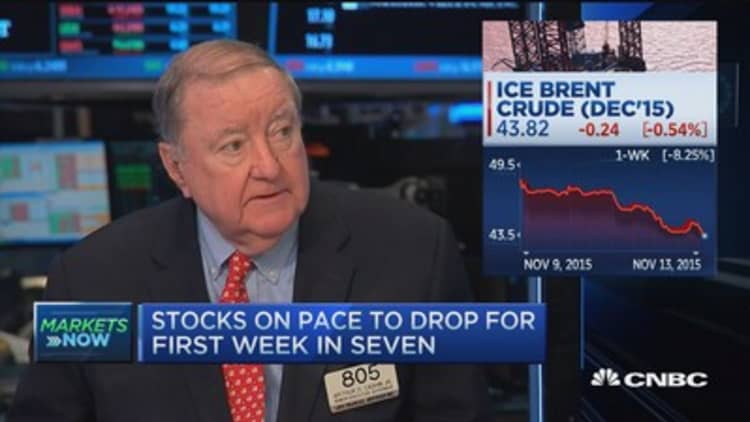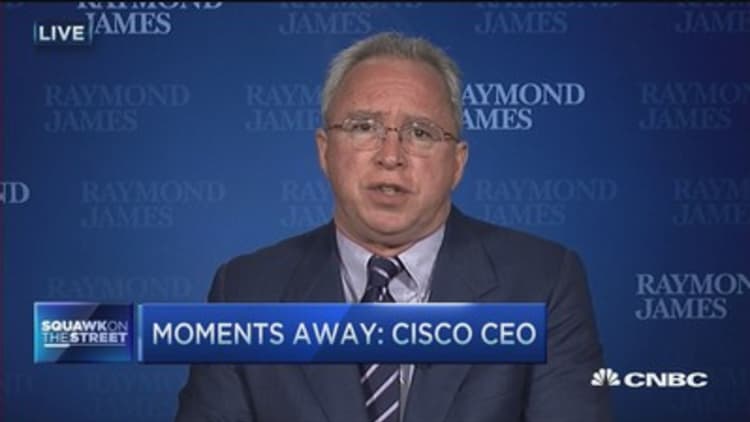
With U.S. equities on track for a 3 percent weekly drop, investors should watch what commodities are doing, Art Cashin said Friday.
The Wall Street veteran noted that most of the sector's major benchmarks are in a state of advanced decline, which may portend bad news for the economy as investors await the Federal Reserve's next move.
"I'm worried about what we have is a near deflationary free fall going on in commodities," the UBS director of floor operations at the New York Stock Exchange told CNBC's "Squawk on the Street." Deflation is a prolonged slump in prices that is seen by economists as a sign of economic trouble.
"You've got copper down, zinc down; even lead is down. Oil is down; the near-month in WTI [West Texas Intermediate] just broke below $41."
The fall within the commodities space has been a partial contributor to the tumble in stocks this week. Oil is currently on track for an 8 percent loss, last trading near $40.40 a barrel.
"Commodities ... does not look very good, and it's the same old story," Scott Wren, senior global equity strategist at Wells Fargo Investment Institute, told CNBC's "Power Lunch" on Friday. "It's a supply-demand based situation. Capacity is built on a China that grows north of 10 percent; that's not happening, it's not going to happen, so it's going to take a while for this supply-demand imbalance to work out."
Simultaneously, the S&P 500 Index has incurred "real damage" as part of the fallout in commodities, Cashin added.
"We're technically damaged. This morning, we broke the 100-day moving average, which was 2,034. You've done some real damage to the market in just one week, that's what's going to make the next two weeks very compelling," Cashin said.
Investors have also digested a slew of speeches from Fed officials, with Cashin saying the central bank is trying to keep its options open. The chances of a Fed rate hike taking place next month soared after a much better-than-expected jobs report was released last week.
Although the timing is uncertain, some investors think the Fed could begin a tightening cycle as early as December. Others say tenuous conditions in the global economy may stay their hand.
"If they're going to walk back from [raising rate], they're not going to walk back this week," Cashin said. "They're going to wait right to the very end unless markets seem to get really bruised and they step back a little bit earlier," he said.
'Lofty expectations'

Wall Street has also had to contend with, as retail earnings have checked in weaker than expected.
"Broadly speaking, this weakness was expected. There are pockets of weakness that weren't, especially in the retail area, but you think about the stronger dollar, you think about lower commodity prices and we do believe this will bounce back next year," James Liu, global market strategist at J.P. Morgan Funds, said in a separate "Squawk on the Street" interview.
"Unfortunately, the market has pretty lofty expectations. We think that a realistic expectation for next year is about 7 to 10 percent earnings growth. From a U.S. equities standpoint, I would hang in there," he said.
Shares of Macy's posted their worst trading day since 2008 on Wednesday after reporting mixed third-quarter earnings, while Nordstrom's stock fell over 15 percent Friday after an earnings miss.
The SPDR S&P Retail ETF was also on track for a weekly loss of over 8 percent.






